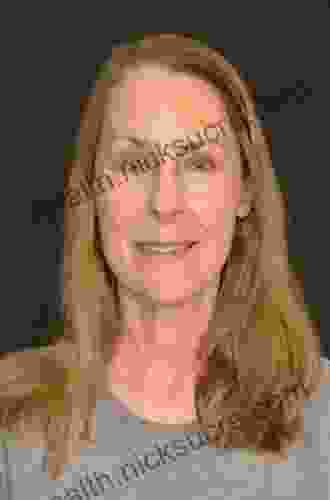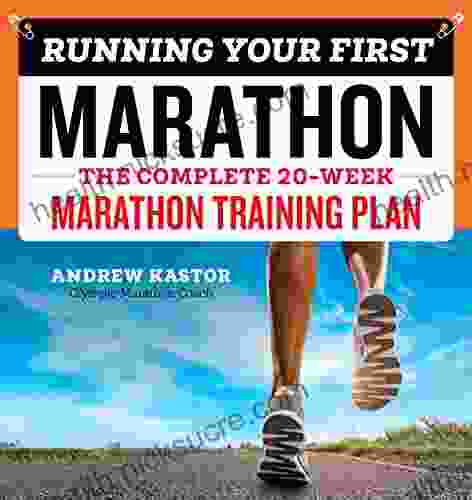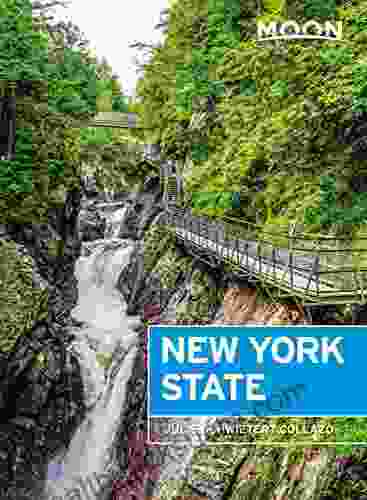Causation in Science: Unraveling the Complex Relationship Between Events

5 out of 5
| Language | : | English |
| File size | : | 3171 KB |
| Text-to-Speech | : | Enabled |
| Screen Reader | : | Supported |
| Enhanced typesetting | : | Enabled |
| Word Wise | : | Enabled |
| Print length | : | 212 pages |
Causation is a fundamental concept in science, used to explain how one event or phenomenon leads to another. Understanding the cause-and-effect relationship is crucial for advancing scientific knowledge, as it allows researchers to make predictions and develop theories about the natural world.
However, establishing causation is not always straightforward. There are several challenges that researchers face when trying to determine whether one event caused another. These challenges include:
- Correlation does not imply causation. Just because two events occur together does not mean that one caused the other. For example, the fact that ice cream sales increase during the summer does not mean that ice cream sales cause summer.
- Confounding variables. When there is more than one possible cause for an event, it can be difficult to determine which one is the actual cause. For example, if a plant wilts, it could be due to lack of water, lack of sunlight, or a disease.
- Reverse causation. In some cases, the supposed effect may actually be the cause of the supposed cause. For example, if a student does poorly on a test, it could be because they did not study, or it could be because they are anxious about taking tests.
Despite these challenges, there are a number of methods that researchers can use to establish causation. These methods include:
- Experiments. Experiments are the most rigorous way to establish causation because they allow researchers to control all of the variables that could potentially confound the results. In an experiment, the researcher manipulates one variable (the independent variable) and measures the effect of that manipulation on another variable (the dependent variable). If the independent variable causes the dependent variable to change, then the researcher can conclude that the independent variable is the cause of the change in the dependent variable.
- Observational studies. Observational studies are less rigorous than experiments, but they can still be used to provide evidence for causation. In an observational study, the researcher observes a group of participants over time and collects data on the variables that are of interest. The researcher then uses statistical methods to analyze the data and look for relationships between the variables. If a strong relationship is found between two variables, the researcher may conclude that one variable causes the other.
- Causal inference. Causal inference is a method of reasoning that allows researchers to make inferences about causation based on the available evidence. Causal inference is based on the assumption that there are certain regularities in the world that make it possible to infer causation from observation. For example, we know that fire causes heat, and we can use this knowledge to infer that if we see a fire, it is likely that it will cause the surrounding area to become hot.
The concept of causation is essential for scientific reasoning. By understanding the causes of events, scientists can make predictions about the future and develop theories about the natural world. However, establishing causation can be challenging, and there are a number of factors that can make it difficult to determine whether one event caused another. Researchers must be aware of these challenges and use rigorous methods to establish causation whenever possible.
References
- Cook, T. D., & Campbell, D. T. (1979). Quasi-experimentation: Design & analysis issues for field settings. Boston: Houghton Mifflin.
- Holland, P. W. (1986). Statistics and causal inference. Journal of the American Statistical Association, 81(396),945-960.
- Pearl, J. (2009). Causality: Models, reasoning, and inference. Cambridge: Cambridge University Press.
5 out of 5
| Language | : | English |
| File size | : | 3171 KB |
| Text-to-Speech | : | Enabled |
| Screen Reader | : | Supported |
| Enhanced typesetting | : | Enabled |
| Word Wise | : | Enabled |
| Print length | : | 212 pages |
Do you want to contribute by writing guest posts on this blog?
Please contact us and send us a resume of previous articles that you have written.
 Fiction
Fiction Non Fiction
Non Fiction Romance
Romance Mystery
Mystery Thriller
Thriller SciFi
SciFi Fantasy
Fantasy Horror
Horror Biography
Biography Selfhelp
Selfhelp Business
Business History
History Classics
Classics Poetry
Poetry Childrens
Childrens Young Adult
Young Adult Educational
Educational Cooking
Cooking Travel
Travel Lifestyle
Lifestyle Spirituality
Spirituality Health
Health Fitness
Fitness Technology
Technology Science
Science Arts
Arts Crafts
Crafts DIY
DIY Gardening
Gardening Petcare
Petcare John Novosel Jr
John Novosel Jr Alison Aulakh
Alison Aulakh Mary Quinlan Mcgrath
Mary Quinlan Mcgrath Douglas Whynott
Douglas Whynott Ethem Mining
Ethem Mining Noor Ain
Noor Ain Jason Padgett
Jason Padgett Chris Chambers
Chris Chambers Anna Leinberger
Anna Leinberger Scott Smith
Scott Smith Michelle Nijhuis
Michelle Nijhuis L H Nicole
L H Nicole Marc Vachon
Marc Vachon Tim Rappleye
Tim Rappleye Pasco Valana
Pasco Valana William A Haviland
William A Haviland Kara Lawrence
Kara Lawrence Victor Canning
Victor Canning Joseph Fort Newton
Joseph Fort Newton Nevin Martell
Nevin Martell Patrick Stewart
Patrick Stewart Alivia Stephens
Alivia Stephens Michaelbrent Collings
Michaelbrent Collings Arthur Aughey
Arthur Aughey Carolyn Shearlock
Carolyn Shearlock Allison Norfolk
Allison Norfolk Peggy L Chinn
Peggy L Chinn Lionel Cruzille
Lionel Cruzille Ryan Spaeder
Ryan Spaeder Sharon Weinberger
Sharon Weinberger Alina A Von Davier
Alina A Von Davier Jeremy Evans
Jeremy Evans Alistair Brownlee
Alistair Brownlee Dr Danielle Ward
Dr Danielle Ward Milton Gussow
Milton Gussow Kaylee Cole
Kaylee Cole Elliot Aronson
Elliot Aronson Matthew Syed
Matthew Syed Joe Sparrow
Joe Sparrow Kelsey Banfield
Kelsey Banfield Kate Wood
Kate Wood Carrot Quinn
Carrot Quinn Eric Newby
Eric Newby The School Of Life
The School Of Life Dan Abrahams
Dan Abrahams Bill Horn
Bill Horn Fluent In Korean
Fluent In Korean Susan Neiman
Susan Neiman Jim Bell
Jim Bell Molly Forbes
Molly Forbes Dennis Overbye
Dennis Overbye Robin Riley
Robin Riley Judy Converse
Judy Converse William B Helmreich
William B Helmreich Liz Evers
Liz Evers Dr Fiona Mcpherson
Dr Fiona Mcpherson Alistair Cooke
Alistair Cooke Jason Durham
Jason Durham Judith Mckay
Judith Mckay Daniel J Levitin
Daniel J Levitin Godfrey Higgins
Godfrey Higgins Allen Carr
Allen Carr Norrinda Brown Hayat
Norrinda Brown Hayat Tim Roughgarden
Tim Roughgarden Susan Ware
Susan Ware Rick Johnson
Rick Johnson Karen Blumenthal
Karen Blumenthal Trae Dorn
Trae Dorn Mike Wallace
Mike Wallace Sylvia Larsen
Sylvia Larsen Don Harris
Don Harris Mourad Boufadene
Mourad Boufadene Alison Pearlman
Alison Pearlman Allison Arevalo
Allison Arevalo P J Richards
P J Richards J Richard Gott
J Richard Gott Kevin Leman
Kevin Leman Linda Barrett Osborne
Linda Barrett Osborne Petr Zima
Petr Zima Joe Vasicek
Joe Vasicek Deborah Macnamara Phd
Deborah Macnamara Phd Frederick Mosteller
Frederick Mosteller The Editors Of Outside Magazine
The Editors Of Outside Magazine Sam Jefferson
Sam Jefferson Karen Murphy
Karen Murphy Carlo Ancelotti
Carlo Ancelotti Theodore B Sauselein
Theodore B Sauselein George Buehler
George Buehler Gary Leland
Gary Leland Allen J Christenson
Allen J Christenson Jim Mancuso
Jim Mancuso P Schreiber
P Schreiber Danica G Hays
Danica G Hays Toru Toba
Toru Toba Gavin Fairbairn
Gavin Fairbairn Debra L Martin
Debra L Martin John Shewey
John Shewey Alisha J Brown
Alisha J Brown Anna Costaras
Anna Costaras James Ferguson
James Ferguson Bill Hendricks
Bill Hendricks Giancarlo Lemmi
Giancarlo Lemmi Sabatino Moscati
Sabatino Moscati Stuart A Kauffman
Stuart A Kauffman Allen M Hornblum
Allen M Hornblum Stuart Holmes Coleman
Stuart Holmes Coleman Michael Shermer
Michael Shermer Maria Rickert Hong
Maria Rickert Hong Gregory Cochran
Gregory Cochran J R R Tolkien
J R R Tolkien Aubrey Gordon
Aubrey Gordon Shawn D Madden
Shawn D Madden Lynn Acton
Lynn Acton Valerie Gilpeer
Valerie Gilpeer Roy Clark
Roy Clark Muthukumaran Mani
Muthukumaran Mani Justin J Exner
Justin J Exner Glenn Tinnin
Glenn Tinnin Saint Teresa Of Avila
Saint Teresa Of Avila Richard Kaczynski
Richard Kaczynski Segun Adebajo
Segun Adebajo Milt Rosko
Milt Rosko George M Johnson
George M Johnson N B Hankes
N B Hankes Karen Wambach
Karen Wambach Lewis Carroll
Lewis Carroll Kim Heacox
Kim Heacox Aly Raisman
Aly Raisman Jim Downs
Jim Downs Brian Treanor
Brian Treanor David Hancock
David Hancock Peter Hollins
Peter Hollins Jim Cobb
Jim Cobb Alison Gervais
Alison Gervais Teri Moser Woo
Teri Moser Woo Matthieu Auzanneau
Matthieu Auzanneau Lynn Stafford Yilmaz
Lynn Stafford Yilmaz Jim C Hines
Jim C Hines Eugen Herrigel
Eugen Herrigel Allistair Mccaw
Allistair Mccaw Vincent Schilling
Vincent Schilling Elce Junior Lauriston
Elce Junior Lauriston Rebecca St James
Rebecca St James Allison Tyson
Allison Tyson Leah Vanderveldt
Leah Vanderveldt Jonathan Moeller
Jonathan Moeller Casi Mclean
Casi Mclean Jack Smith
Jack Smith Dave Pelz
Dave Pelz William Stott
William Stott Chris Fox
Chris Fox David Hurst Thomas
David Hurst Thomas Karen Bonnell
Karen Bonnell Joanna Foley Rd
Joanna Foley Rd Mara Krechevsky
Mara Krechevsky Ed Robinson
Ed Robinson Randy Olson
Randy Olson Ken Cohen
Ken Cohen Eli Saslow
Eli Saslow Despina Meris
Despina Meris Suzanne Nottingham
Suzanne Nottingham Allan Trevor
Allan Trevor Todd Wilbur
Todd Wilbur Allen Stroud
Allen Stroud Joel Thomas Chopp
Joel Thomas Chopp Bogdan Ivanov
Bogdan Ivanov Christopher Bruhn
Christopher Bruhn Chris Cannon
Chris Cannon Julie Currin
Julie Currin Emily Parke Chase
Emily Parke Chase Diana Korte
Diana Korte Catherine Gildiner
Catherine Gildiner Stephen R Covey
Stephen R Covey Jacqueline H Wolf
Jacqueline H Wolf Geoff Salmon
Geoff Salmon Frank Delaney
Frank Delaney Rex L Forehand
Rex L Forehand Selene Yeager
Selene Yeager David M Killoran
David M Killoran John Bul Dau
John Bul Dau Rene Almeling
Rene Almeling S Allen Counter
S Allen Counter Allen Dulles
Allen Dulles James Kipling
James Kipling Richard M Van Gaasbeek
Richard M Van Gaasbeek Steven J Burton
Steven J Burton Daniel Mendelsohn
Daniel Mendelsohn Myrna Blyth
Myrna Blyth Jeff Gordon
Jeff Gordon James Sieckmann
James Sieckmann Ian Westermann
Ian Westermann Felix Marks
Felix Marks Greg Strandberg
Greg Strandberg Kenji Tokitsu
Kenji Tokitsu Jim Rahtz
Jim Rahtz Alistair Higham
Alistair Higham Mark Beauregard
Mark Beauregard Alison Lighthall Miller
Alison Lighthall Miller Jon S Bailey
Jon S Bailey Eric Lemarque
Eric Lemarque Robert Penn Warren
Robert Penn Warren Roger Bannister
Roger Bannister Grace E Stewart
Grace E Stewart Alexander Clarke
Alexander Clarke Mandi Hickman
Mandi Hickman Jimena Canales
Jimena Canales Laura Randall
Laura Randall John Bargh Ph D
John Bargh Ph D Grace Lindsay
Grace Lindsay Carla Mooney
Carla Mooney Perry Lefko
Perry Lefko Alison Scott Wright
Alison Scott Wright Marc Bubbs
Marc Bubbs Joe Kelly
Joe Kelly Allison Alexy
Allison Alexy Tom Babin
Tom Babin Kenneth Igiri
Kenneth Igiri Simone Milasas
Simone Milasas Sportsman S Connection
Sportsman S Connection Julie Schwietert
Julie Schwietert Natasha Devon
Natasha Devon Travis Jeffery
Travis Jeffery Michele Stanten
Michele Stanten Courtney Summers
Courtney Summers Robert Taylor
Robert Taylor Kaitlyn Hill
Kaitlyn Hill Susan Kuklin
Susan Kuklin Mike Zimmerman
Mike Zimmerman Clive Cussler
Clive Cussler Allen Morris Jones
Allen Morris Jones Winston Churchill
Winston Churchill Wendelin Van Draanen
Wendelin Van Draanen Laerke Recht
Laerke Recht Maria Thompson Daviess
Maria Thompson Daviess Judith Rich Harris
Judith Rich Harris Amy Saltzman
Amy Saltzman Sid Roth
Sid Roth Rowena Murray
Rowena Murray Bobby Clampett
Bobby Clampett Vitalis I Valentine
Vitalis I Valentine Andrew Benfield
Andrew Benfield Debi Pearl
Debi Pearl Maurice Isserman
Maurice Isserman C Calvin Jones
C Calvin Jones Beth Cavenaugh
Beth Cavenaugh Don Miguel Ruiz
Don Miguel Ruiz Olajumoke Adenowo
Olajumoke Adenowo Linda Martella Whitsett
Linda Martella Whitsett Joel S Owen
Joel S Owen Allan Hall
Allan Hall Ron Merly
Ron Merly Julie Morgenstern
Julie Morgenstern Andrie De Vries
Andrie De Vries C S Wilde
C S Wilde Stephen Haddelsey
Stephen Haddelsey Tiger Woods
Tiger Woods Ann C Logue
Ann C Logue Gary Sizer
Gary Sizer Philip Gosse
Philip Gosse Aliza Kelly
Aliza Kelly Jared Cohen
Jared Cohen Richard H Thaler
Richard H Thaler Carlos Castaneda
Carlos Castaneda W Edwards Deming
W Edwards Deming Paul J Kosmin
Paul J Kosmin Daniel J Siegel
Daniel J Siegel Shobi Nolan
Shobi Nolan Alicia F Lieberman
Alicia F Lieberman Carl Paoli
Carl Paoli Etienne Noumen
Etienne Noumen Peter Van Der Linden
Peter Van Der Linden Pamela Douglas
Pamela Douglas Steve J Martin
Steve J Martin Cate Stillman
Cate Stillman Daniel Stewart
Daniel Stewart Alicia Jasinska
Alicia Jasinska William W Dressler
William W Dressler Suzanne O Sullivan
Suzanne O Sullivan Matt Hart
Matt Hart Pottermore Publishing
Pottermore Publishing Sarah Grison
Sarah Grison Andrew Kastor
Andrew Kastor Nick Karas
Nick Karas Holly Homer
Holly Homer Charles Conn
Charles Conn Tom Watson
Tom Watson Douglas Nicholas
Douglas Nicholas Monique Joiner Siedlak
Monique Joiner Siedlak Charles J Robinson
Charles J Robinson Kwame Onwuachi
Kwame Onwuachi Greg Moran
Greg Moran Chris Mulder
Chris Mulder Allan House
Allan House Cinda Williams Chima
Cinda Williams Chima Kim Liggett
Kim Liggett Linda S Jones
Linda S Jones Ben Greenfield
Ben Greenfield Edwin Amenta
Edwin Amenta Nikki Solano
Nikki Solano D C Fergerson
D C Fergerson Matthew Mccoy
Matthew Mccoy Jeffrey E Young
Jeffrey E Young Emma Shelford
Emma Shelford Frederick Courteney Selous
Frederick Courteney Selous Brenda Gable
Brenda Gable Walter Isaacson
Walter Isaacson James Patterson
James Patterson Emily Thiede
Emily Thiede Harald B Teicher
Harald B Teicher Brian Boone
Brian Boone Peter Mark Adams
Peter Mark Adams Katy Milkman
Katy Milkman Ashley D Kendall
Ashley D Kendall Sarah P Morris
Sarah P Morris Joshua Elliot James
Joshua Elliot James Bryan Goodwin
Bryan Goodwin Mark F Sohn
Mark F Sohn Alexandra Amor
Alexandra Amor Linda Greenlaw
Linda Greenlaw Tom Kelly
Tom Kelly Rob Shelsky
Rob Shelsky Meritxell Castells
Meritxell Castells Pass Your Class
Pass Your Class 10th Edition Kindle Edition
10th Edition Kindle Edition Rex Allen Jones Ii
Rex Allen Jones Ii Stephen E Flowers
Stephen E Flowers Lexie Scott
Lexie Scott Joosr
Joosr Greg Henry
Greg Henry Allison Williams
Allison Williams John Lloyd
John Lloyd Roy Shepard
Roy Shepard Marti Olsen Laney
Marti Olsen Laney Dennis Jarecke
Dennis Jarecke Marlin M Mackenzie
Marlin M Mackenzie Eickhel Mendoza
Eickhel Mendoza Barbara De Angelis
Barbara De Angelis Liz Clark
Liz Clark Henry Cloud
Henry Cloud David Eagleman
David Eagleman Suzanne Alderson
Suzanne Alderson Joseph Harkreader
Joseph Harkreader Brett Lee Scott
Brett Lee Scott Annabeth Headrick
Annabeth Headrick Jeff Brent
Jeff Brent Kevin West
Kevin West Allison Mcdonald Ace
Allison Mcdonald Ace Ryan Hall
Ryan Hall Brian Lopes
Brian Lopes Naomi Kokoricha
Naomi Kokoricha Neely Spence Gracey
Neely Spence Gracey Jonathan St B T Evans
Jonathan St B T Evans James F Mckenzie
James F Mckenzie Dan Millman
Dan Millman Eddie Guerrero
Eddie Guerrero Rodney Ford
Rodney Ford Jennifer Waldburger
Jennifer Waldburger Rachel Caine
Rachel Caine Robin Stevenson
Robin Stevenson Roy Macskimming
Roy Macskimming Itzik Ben Gan
Itzik Ben Gan Grant Petersen
Grant Petersen Tress Bowen
Tress Bowen Lennard Bickel
Lennard Bickel Michael Fullan
Michael Fullan Nick Riley
Nick Riley Somaiya Daud
Somaiya Daud Christian Asonye
Christian Asonye Dr Ron M Horner
Dr Ron M Horner Raychelle Cassada Lohmann
Raychelle Cassada Lohmann Allen N Mendler
Allen N Mendler Robert Kiltz
Robert Kiltz Jdmission Senior Consultants
Jdmission Senior Consultants Priya Ardis
Priya Ardis Eric Naguski
Eric Naguski Jennifer E Smith
Jennifer E Smith Y R Davis
Y R Davis Ronald E Mickens
Ronald E Mickens Jorge Muniz
Jorge Muniz Jeff Hawkins
Jeff Hawkins Annie F Downs
Annie F Downs Gerd Gigerenzer
Gerd Gigerenzer Lisa M Rose
Lisa M Rose Ronald Hutton
Ronald Hutton John Hughes
John Hughes Rhonda Huettenmueller
Rhonda Huettenmueller Robert S Witte
Robert S Witte Helen Macdonald
Helen Macdonald Alison Palmer
Alison Palmer Amby Burfoot
Amby Burfoot Deborah Ann Davis
Deborah Ann Davis Jim Cheney
Jim Cheney Raymond Turner
Raymond Turner Giuseppe Mascoli
Giuseppe Mascoli Scott Graham
Scott Graham Thomas R Verny
Thomas R Verny Allan Kardec
Allan Kardec Allan Phillips
Allan Phillips Tami Asars
Tami Asars Neil Hayes
Neil Hayes Allen R Angel
Allen R Angel Allen O Bannon
Allen O Bannon Jonathan E Steinhart
Jonathan E Steinhart Paul Schullery
Paul Schullery Bret Hart
Bret Hart Kota Nozomi
Kota Nozomi Linda A Curtis
Linda A Curtis Jean Jacques Chevron
Jean Jacques Chevron Randy Russell
Randy Russell Brenda Boyd
Brenda Boyd Signe Pike
Signe Pike Allen Everett
Allen Everett Gail Steketee
Gail Steketee Paul S Auerbach
Paul S Auerbach Leonard Shlain
Leonard Shlain Arianna Brooks
Arianna Brooks Erica Abbett
Erica Abbett Mary Bergin
Mary Bergin Pure Calisthenics
Pure Calisthenics Iain Gately
Iain Gately Tami Overhauser
Tami Overhauser The Dark Lords
The Dark Lords Dennis Georgatos
Dennis Georgatos Mary Elizabeth O Brien
Mary Elizabeth O Brien Jay Blahnik
Jay Blahnik John Michael Kelly
John Michael Kelly Jenara Nerenberg
Jenara Nerenberg Amy Wenzel
Amy Wenzel Bill Varney Jr
Bill Varney Jr Chris Lear
Chris Lear Frank Christianson
Frank Christianson Hilda Jarman Muir
Hilda Jarman Muir Edmund G R Kraal
Edmund G R Kraal Tim Hodkinson
Tim Hodkinson Phil Hornshaw
Phil Hornshaw Novak Djokovic
Novak Djokovic Paul D Brinkman
Paul D Brinkman Kathleen Bachynski
Kathleen Bachynski Franz Kellermann
Franz Kellermann Meredith Russo
Meredith Russo Christina Hoff Sommers
Christina Hoff Sommers Robbin Gregory
Robbin Gregory Mark Dice
Mark Dice Grant S Lipman
Grant S Lipman Jennifer Louden
Jennifer Louden John Macinnes
John Macinnes Sheena Byrom
Sheena Byrom Carla Simpson
Carla Simpson Dr Nadine Sinclair
Dr Nadine Sinclair Alan Watts
Alan Watts Anil Seth
Anil Seth Lisa Marshall
Lisa Marshall Tom Daley
Tom Daley Kate Mcmahon
Kate Mcmahon Jeff Burlingame
Jeff Burlingame James Fallows
James Fallows Mark Kistler
Mark Kistler Vivian Gornick
Vivian Gornick Janet E Wall
Janet E Wall Paul Green
Paul Green Meredith L Jacobs
Meredith L Jacobs Bruce Tremper
Bruce Tremper Edmund Richardson
Edmund Richardson John C Lennox
John C Lennox Robert M Sapolsky
Robert M Sapolsky Lydia Sherrer
Lydia Sherrer Robert Green
Robert Green Michael Reist
Michael Reist Bright Summaries
Bright Summaries Lsatmax Lsat Prep
Lsatmax Lsat Prep Allison Dolan
Allison Dolan Cy Tymony
Cy Tymony Kate Clifford Larson
Kate Clifford Larson Allen G Taylor
Allen G Taylor Apryl Baker
Apryl Baker Tim Baker
Tim Baker Joe Kenn
Joe Kenn Jen Torborg
Jen Torborg Chip Coffey
Chip Coffey David F Anderson
David F Anderson Allan G Bluman
Allan G Bluman Alister E Mcgrath
Alister E Mcgrath John Kavanagh
John Kavanagh Marianne Williamson
Marianne Williamson Allison Schrager
Allison Schrager Konnie Wong
Konnie Wong Kimberly Brown
Kimberly Brown W E Fairbairn
W E Fairbairn Dan Miller
Dan Miller Sean Patrick
Sean Patrick Chris Lundgren
Chris Lundgren Mian Majid Ali Afzal
Mian Majid Ali Afzal Josephine Perry
Josephine Perry Alicia Thomas Woolf
Alicia Thomas Woolf Maria Hannay
Maria Hannay Lynn Rush
Lynn Rush Marie Osmond
Marie Osmond Claude Levi Strauss
Claude Levi Strauss Kristine Hudson
Kristine Hudson Charlotte Runcie
Charlotte Runcie
Light bulbAdvertise smarter! Our strategic ad space ensures maximum exposure. Reserve your spot today!
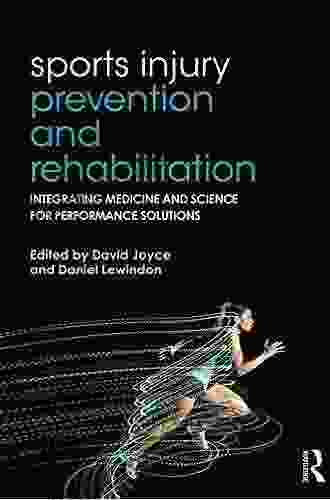
 Diego BlairIntegrating Medicine and Science for Performance Solutions: A Comprehensive...
Diego BlairIntegrating Medicine and Science for Performance Solutions: A Comprehensive...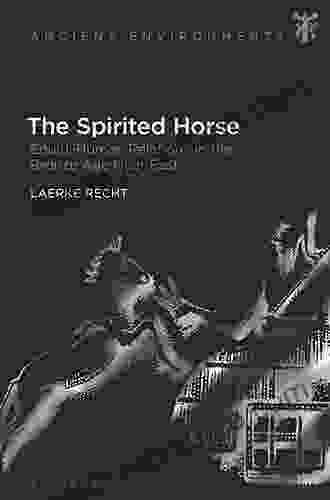
 Wesley ReedExploring the Intriguing Symbiosis: Equid Human Relations in the Bronze Age...
Wesley ReedExploring the Intriguing Symbiosis: Equid Human Relations in the Bronze Age...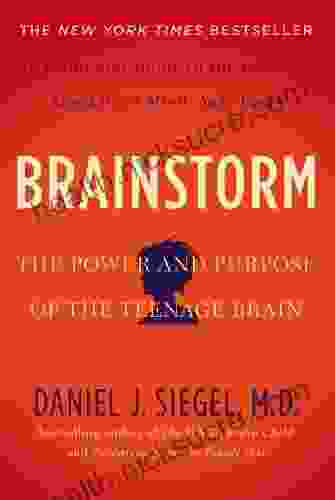
 Yasushi InoueThe Power and Purpose of the Teenage Brain: A Comprehensive Guide for Parents...
Yasushi InoueThe Power and Purpose of the Teenage Brain: A Comprehensive Guide for Parents... Gage HayesFollow ·16.6k
Gage HayesFollow ·16.6k Jackson BlairFollow ·7k
Jackson BlairFollow ·7k Vince HayesFollow ·15.5k
Vince HayesFollow ·15.5k Deacon BellFollow ·12.2k
Deacon BellFollow ·12.2k Eli BlairFollow ·5.1k
Eli BlairFollow ·5.1k W.H. AudenFollow ·10.3k
W.H. AudenFollow ·10.3k Charles DickensFollow ·18.8k
Charles DickensFollow ·18.8k Evan HayesFollow ·11.9k
Evan HayesFollow ·11.9k
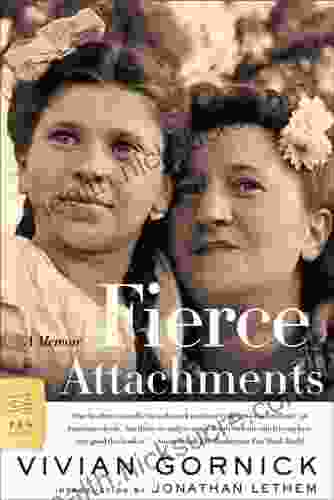
 Dominic Simmons
Dominic SimmonsFierce Attachments: A Memoir by Vivian Gornick - A...
Vivian Gornick's Fierce Attachments is a...
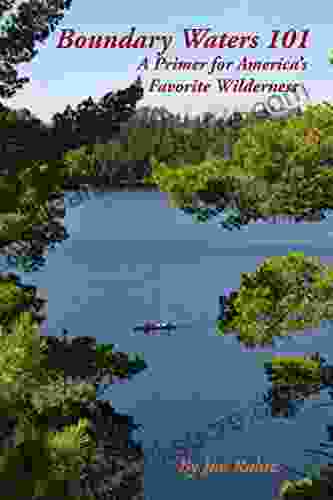
 Edison Mitchell
Edison MitchellPrimer for America's Favorite Wilderness: A Comprehensive...
In the vast...
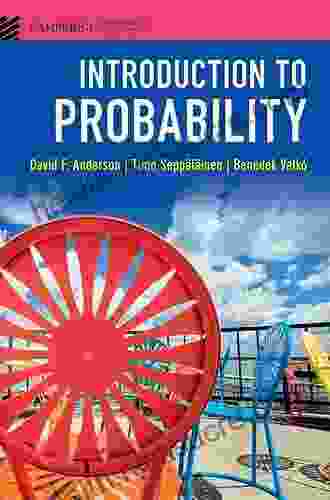
 Jan Mitchell
Jan MitchellIntroduction to Probability: A Comprehensive Guide for...
Probability is a crucial branch of...
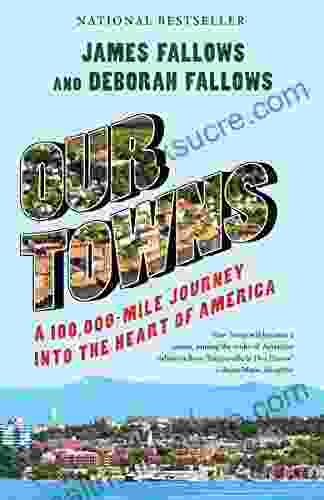
 Chuck Mitchell
Chuck Mitchell100,000 Mile Journey Into the Heart of America
In 2016, I embarked on a...
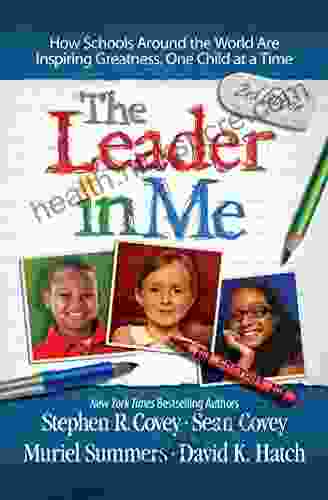
 Eddie Bell
Eddie BellHow Schools Around the World Are Inspiring Greatness One...
Education is the key...
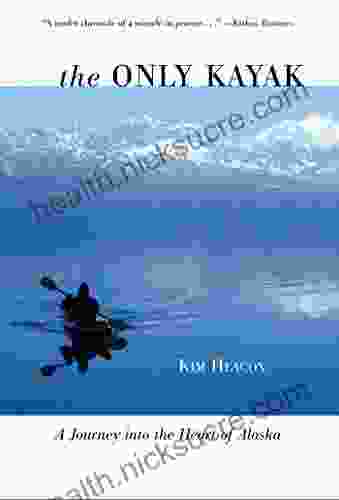
 Quentin Powell
Quentin PowellJourney into the Heart of Alaska: Exploring the Majestic...
Alaska, the largest...
5 out of 5
| Language | : | English |
| File size | : | 3171 KB |
| Text-to-Speech | : | Enabled |
| Screen Reader | : | Supported |
| Enhanced typesetting | : | Enabled |
| Word Wise | : | Enabled |
| Print length | : | 212 pages |


